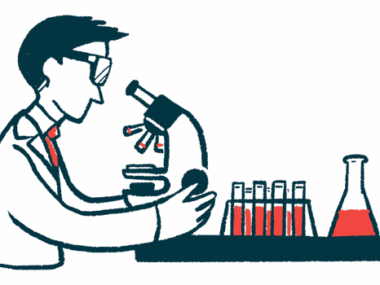Study Links Inflammatory Molecules to Behavior Problems in PWS Children
Written by |

Children with Prader-Willi syndrome (PWS) have abnormally high blood levels of certain inflammatory molecules, which is significantly associated with behavioral traits and symptoms of the condition, a recent study has found.
The study, “A pro‑infammatory phenotype is associated with behavioural traits in children with Prader–Willi syndrome,” was published in the journal European Child and Adolescent Psychiatry.
While the most notable clinical feature of PWS is an insatiable appetite, patients often exhibit mental health problems, including anxiety, obsessive compulsive disorder (OCD), angry outbursts, and attention-deficit hyperactivity disorder (ADHD).
The mechanisms underlying such issues are not fully understood, but research has suggested that inflammation may play a role. Inflammation can change the metabolism of neurotransmitters in the brain and some inflammatory markers have been found elevated in people with mental health disorders. Neurotransmitters are molecules that drive communication between nerve cells.
To investigate the relationship between inflammation and PWS-related psychiatric symptoms, and determine whether patients might benefit from therapies that modulate the immune system, a team in Poland examined 20 children with PWS (mean age 11.5) and 20 healthy controls matched for age and sex.
Inflammation is often found as a consequence of excess fat in people who are obese, but most patients in this study were normal weight (two were overweight), which allowed researchers to exclude the effects of high body fat on inflammatory markers.
Participants were examined for a panel of 27 inflammatory proteins in the blood, as well as for body fat — using measurements such as body mass index, waist circumference, and hip circumference — and behavioral and mental health problems.
Behavioral symptoms were determined with a tool called the Child Behaviour Checklist for school-age children (CBCL), which asks parents to describe a number of aspects of their child’s behavior that may reveal anxiety, aggressive behavior, and social, thought, and attention problems.
The Mini-International Neuropsychiatric Interview for Children and Adolescents (MINI Kid) was used to assess the 30 most prevalent and clinically significant disorders or subtypes.
Results showed that interleukin (IL)-1β and IL-13 were significantly higher in PWS patients than in controls, and remained so after adjusting for age and waist circumference. Levels of IL-1RA, IL-1β, and IL-6 were higher in the two overweight patients compared to controls.
Mental disorders were fairly common in PWS patients: nine had OCD, eight had oppositional-defiant disorder (showing uncooperative, defiant, and hostile behaviors), seven had anxiety disorders, six had ADHD, six had autism spectrum disorder, and five had mood disorders.
In total, four patients had four or more mental disorders according to the MINI Kid questionnaire, nine had two to three disorders, and four had one disorder. Three patients had no mental problems on this scale.
Statistical analysis showed that higher IL-1β levels in PWS patients significantly correlated with several domains in the CBCL scale, including social withdrawal/depression, thought problems, attention problems, and aggressive behaviour.
Levels of IL-13 were significantly associated with symptom severity, namely in social problems, attention problems, and both delinquent and aggressive behaviors.
Although the remaining inflammatory molecules did not associate with any psychological symptoms, the findings with these two interleukins suggest that immune activation may be associated with greater psychological problems.
“In summary, the results of our study indicate that subclinical inflammation, in terms of elevated IL-1β and IL-13, appears in PWS patients regardless of overweight or obesity,” the researchers wrote. “These observations might be related to a risk of developing various psychiatric co-morbidities and are in agreement with studies exploring subclinical inflammation in various populations of patients with severe mental disorders.”
The findings also suggest that subclinical inflammation may be the root cause of these mental disorders, though more studies are needed to explore exactly how inflammation contributes to disease processes, the team added.





